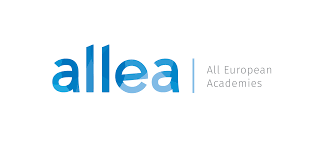


On 14 March 2024, ALLEA (ALL European Academies) released a statement advocating for strengthening the scope and role of science education curricula, at the primary and post-primary level, to equip young learners with the requisite knowledge, skills, and values to become informed, critical, responsible, and ethically conscious participants in a scientifically literate society.
In our modern world, where science and technology are deeply ingrained in every facet of our lives, it is becoming increasingly clear that society’s welfare, progress, and perhaps survival, hinges on building a citizenry that’s well versed in the ‘Nature of Science’ (NOS). While we go about most of our days engaging with science and technology without paying much attention to their marvels, there are times of crisis, such as during the peak of the Covid-19 pandemic, that the importance of ‘science literacy’ becomes unmistakable. Furthermore, the rise of new technologies and scientific progress brings with it ethical questions – and it will become ever more critical for upcoming generations to learn how to recognise and answer them. This ALLEA Statement argues that in order for them to be equipped with the skill-sets and values to successfully navigate such potential ethical dilemmas related to science and research, and more broadly to become active and informed citizens, current science education curricula, at the primary and post-primary level, needs to be broadened to include the NOS as well as research ethics.
Entitled, ‘Early Learning Opportunities for Shaping a Scientifically Literate Society’, the statement provides illustrations of the benefits of learning about the NOS and research ethics, which include, among others:
Upholding trust in science, scientists, and scientific institutions – Teaching young learners that uncertainty and different interpretations, as well as the evolution of scientific knowledge based on new data and insights, are imperative to science could prevent the erosion of trust in science, scientists, and scientific institutions that often stems from a poor understanding of the scientific process.
Defending against science mis- and disinformation – A better understanding of the NOS, for instance recognising who is considered an expert, why scientists may disagree, and their motivations, would help the next generation spot reliable information and credible sources, and thereby make them less susceptible to science mis- and disinformation.
Developing ethical, informed, and compassionate citizens – Learning to reflect on values and ethics at an early age contributes to moral character development and helps guide children in their behaviour throughout their lives. Similarly, stronger incorporation of research ethics as part of science education curricula could support young people in developing the knowledge, skills, and values required to competently analyse and critically question the moral and ethical dimensions of scientific discoveries, new technologies, and experiments, which will be critical to societal well-being in an increasingly technology-dependent world.
The statement goes on to outline recommended actions to shape a scientifically literate society from the ground up, which include, among others:
Incorporating learning objectives on the NOS and research ethics into primary and post-primary curricula, through the targeted integration of the pedagogies into existing science education programmes
Increasing the enrolment of schools into participatory research and citizen-science projects to not only increase basic understanding of science, but also to encourage young people to pursue STEM careers
Supporting the development and implementation of NOS and research ethics pedagogical courses in initial teacher education (ITE) and continuous professional learning (CPL) programmes for teachers
This ALLEA statement was formulated by the ALLEA Working Group Science Education, with Dr Cliona Murphy (WG chair), Mathijs Vleugel and Maria Ronald (ALLEA Secretariat) as principal authors. Additional insights were obtained from the ALLEA Permanent Working Group on Science and Ethics and external expert Dr Eve Poole.
Read the full statement here.
This article is republished from ALLEA under a Creative Commons license. Read the original article.